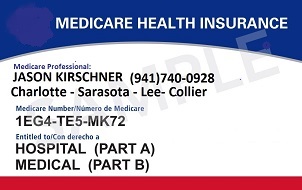Are you living in Florida and working past 65?

If you delay enrolling in Medicare at age 65, you may face penalties and higher premiums when you do eventually enroll. However, there are some situations where delaying Medicare enrollment may make sense for you.
For example, if you have health insurance through your employer or your spouse’s employer and the employer has 20 or more employees, you may be able to delay enrolling in Medicare without penalty. In this case, your employer’s insurance would be your primary insurance, and Medicare would be secondary. However, if your employer has fewer than 20 employees, Medicare would be your primary insurance, and you would need to enroll in Medicare Part A and Part B when you turn 65 to avoid late enrollment penalties.
Another situation where delaying Medicare enrollment may make sense is if you are still working and plan to continue working past age 65. In this case, if you have employer-sponsored health insurance, you may be able to delay enrolling in Medicare without penalty. However, once you stop working and lose your employer-sponsored health insurance, you will need to enroll in Medicare to avoid penalties and gaps in coverage.
It’s important to note that if you delay enrolling in Medicare and don’t have employer-sponsored health insurance, you may face penalties and higher premiums when you do eventually enroll. It’s generally recommended that you enroll in Medicare during your Initial Enrollment Period, which is the seven-month period that starts three months before the month you turn 65, includes the month you turn 65, and ends three months after the month you turn 65.
Understanding Cobra Coverage
Cobra is not a health insurance provider or a healthcare organization. Instead, it is a command-line interface (CLI) framework for Go applications, as I mentioned in my previous answer. It allows developers to create CLI applications more easily and efficiently.
However, there is something called COBRA health coverage, which stands for Consolidated Omnibus Budget Reconciliation Act. COBRA is a federal law that allows employees to continue their health insurance coverage for a limited time after leaving their job or experiencing certain other qualifying events that would normally result in the loss of coverage.
Under COBRA, eligible individuals can continue to receive the same health insurance coverage they had while employed, but they must pay the full cost of the coverage themselves, including the portion that was previously paid by their employer.
It's important to note that COBRA coverage is not a health insurance plan itself, but rather a continuation of an existing plan. The details and availability of COBRA coverage may vary depending on the specific circumstances and the employer's plan. If you have questions about COBRA coverage, you should consult with your employer or a qualified healthcare professional.
Do I need to sign up for Medicare when I turn 65?
- Don’t wait until your COBRA coverage ends to sign up for Part B — Getting COBRA DOES NOT extend your limited time to sign up for Medicare.
- If you have a Health Savings Account (HSA): To avoid a tax penalty, you and your employer should stop contributing to your HSA 6 months before you retire or apply for benefits from Social Security (or the Railroad Retirement Board).

